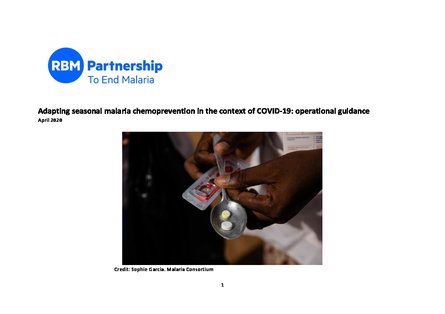
The COVID-19 pandemic represents an unprecedented challenge for all countries implementing seasonal malaria chemoprevention (SMC), and there is high risk that, when health systems are overwhelmed, both direct COVID-19 mortality and indirect mortality from malaria and other preventable and treatable conditions will increase dramatically. Countries will need to make difficult decisions to balance the demands of responding directly to COVID-19, while simultaneously engaging in strategic planning and coordinated action to maintain essential health service delivery. Ensuring access to core malaria prevention measures is an important strategy to prevent malaria mortality, and for reducing the strain on health systems. These include vector control with insecticide treated nets and indoor residual spraying, as well as chemoprevention for pregnant women and young children, in particular SMC. The COVID-19 pandemic is evolving rapidly and malaria-endemic country governments and their partners should ensure flexibility and rapid response to safely provide access to malaria prevention and case management in areas affected by COVID-19. The country-specific malaria response should consider tailoring interventions in the COVID-19 response actions to protect the healthcare workers and the communities affected by malaria.